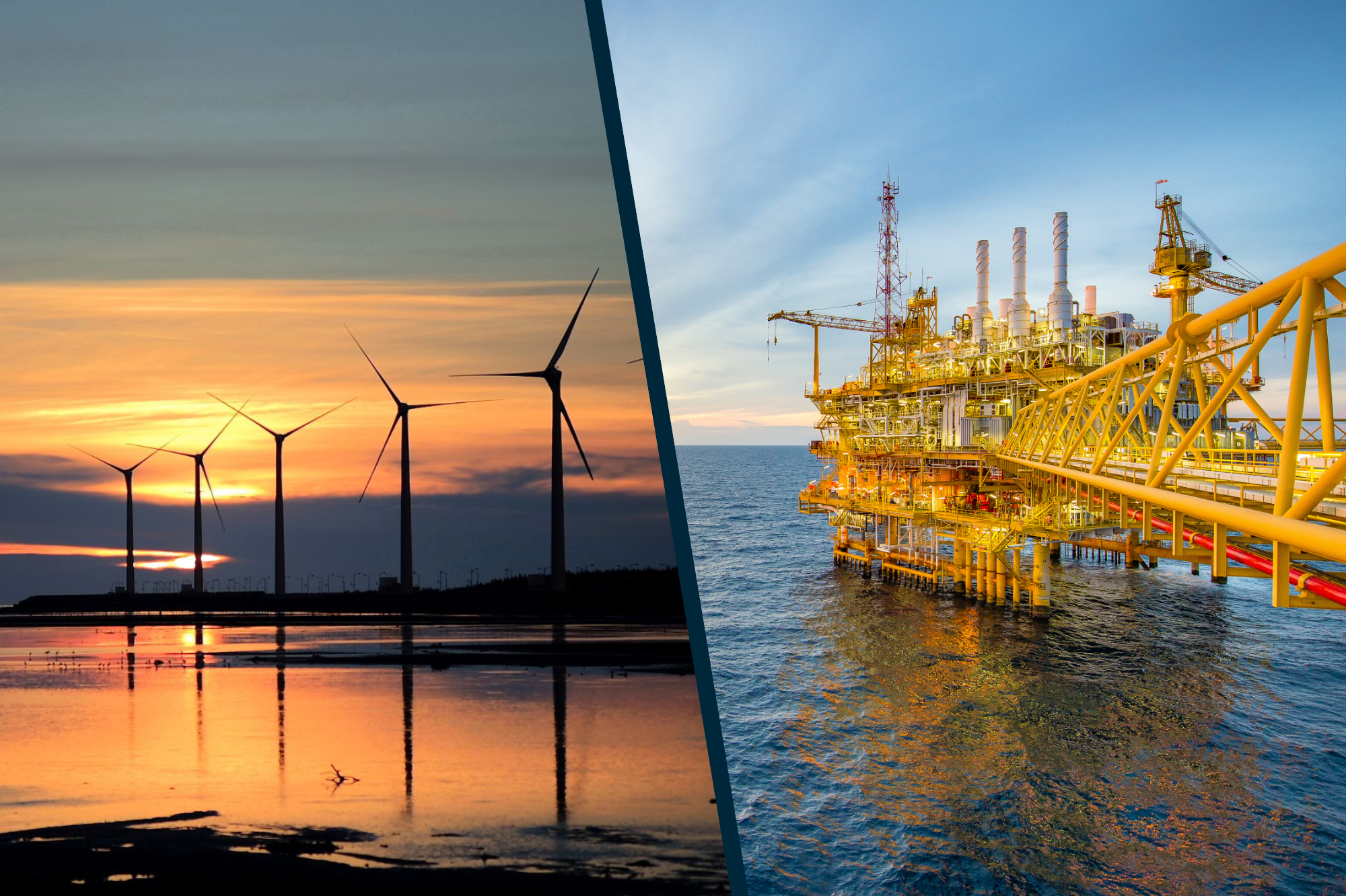Story
Landmark new research funded to shape the future of “Marine Artificial Structures”: from oil and gas platforms to offshore wind structures
02 July 2025
New project: ValMAS (Value of Marine Artificial Structures) is a PML-led £5.6 million transdisciplinary research project set to transform how offshore structures are managed across their full lifecycle.

There is a growing body of evidence on the effects on the marine environment of offshore oil, gas, and wind energy infrastructure, as well as shipwrecks, collectively known as marine artificial structures (MAS).
Led by PML’s Professor Nicola Beaumont, the Value of Marine Artificial Structures (ValMAS) project aims to support a just, nature-positive, and economically efficient transition to low-carbon offshore infrastructure. This ambitious four-year programme will generate vital new evidence on how MAS impact the ocean environment, economy, and society.
It is co-funded by Natural Environment Research Council (NERC) and the industry-sponsored INSITE Programme.
“Thousands of artificial structures have been installed in the marine environment, and many more are on the horizon as part of the UK’s transition to a clean energy future,” said Professor Beaumont.
“VALMAS will give policymakers and industry the tools they need to make informed decisions that align with both net zero targets and nature recovery goals.”
MAS have potentially significant footprints at all stages of their lifecycle through demonstration, construction, operation, and finally decommissioning. As marine space is increasingly squeezed, this large-scale development will inevitably lead to environmental, social and economic trade-offs. While these structures can provide habitat, support blue carbon capture, or enhance biodiversity, they can also pose risks that are not yet fully understood.
While evidence, tools and models around natural capital and MAS exist, access to and uptake of these resources remains limited. There is a pressing need to translate this knowledge into strategic, value-based decision-making that is practical, user-driven, and ready for real-world application.
The transdisciplinary project will involve 19 scientists from PML, with specialisms ranging from social science to marine systems modelling, and earth observation to marine ecology. Partner organisations include the Norwegian Institute for Water Research (NIVA), Cardiff University, Natural England – the government’s adviser for the natural environment in England, the University of Aberdeen, SUERC – Centre For The Isotope Sciences, University of Glasgow, the University of Strathclyde, EFTEC, Ecologos, NIRAS, Marine Energy Wales, the Scottish Fishermen’s Federation, The Shellfish Association of Great Britain, and the National Federation of Fishermen’s Organisations. It also brings together another 20+ partners from academia, government, NGOs and industry, including major energy operators.
Focusing on the North Sea, with wider applicability across the UK and beyond VALMAS will:
- Map the MAS landscape to identify research gaps and build a collaborative Community of Practice.
- Develop a robust Natural Capital framework, integrating ecological, economic, and social values.
- Model future scenarios under climate change to quantify changes in biodiversity, fisheries, and carbon sequestration.
- Assess public perceptions and economic trade-offs to ensure a fair and inclusive energy transition.
- Create state-of-the-art Decision Support Tools (DSTs) for use by policymakers, regulators, and industry stakeholders.
Tracy Shimmield, Director of Research and Skill at the Natural Environment Research Council (NERC) said:
“NERC is delighted to announce the launch of ‘The Value of Marine Artificial Structures (ValMAS)’ programme, which seeks to inform nature positive policy solutions for the management of all life stages of Marine Artificial Structures (MAS). The ValMAS project, which is cofounded with industry, builds on the work achieved by the INSITE programme. It will deliver evidence of the interplay between the ecological, economic and social values of MAS, to build a better understanding of their environmental value across sectors in the North Sea. Evidence generated will inform decision making on the best outcomes for the environment when it comes to decommissioning.”
The Industry Executive Committee of INSITE added:
“At a critical time in the energy transition of the North Sea, the ValMAS project aims to consolidate our understanding of the role marine artificial structures play for our environment, economy and society, equipping us with the necessary tools to support sustainable, nature-positive marine management and decommissioning practices for the decades ahead.”
VALMAS is funded by NERC and the INSITE Industry Consortium as part of its commitment to world-leading research that supports the UK’s environmental and energy ambitions. The project exemplifies NERC’s focus on interdisciplinary solutions that deliver societal, environmental and economic benefit.
“This is not just about infrastructure,” said Beaumont. “It’s about people, nature, and building a future where sustainable energy systems work in harmony with marine life.”
The project will begin in August 2025 and run for four years.
Related information
For further information or to arrange interviews, please contact Dan Jones dajo@pml.ac.uk / Kelly-Marie Davidson kdav@pml.ac.uk
